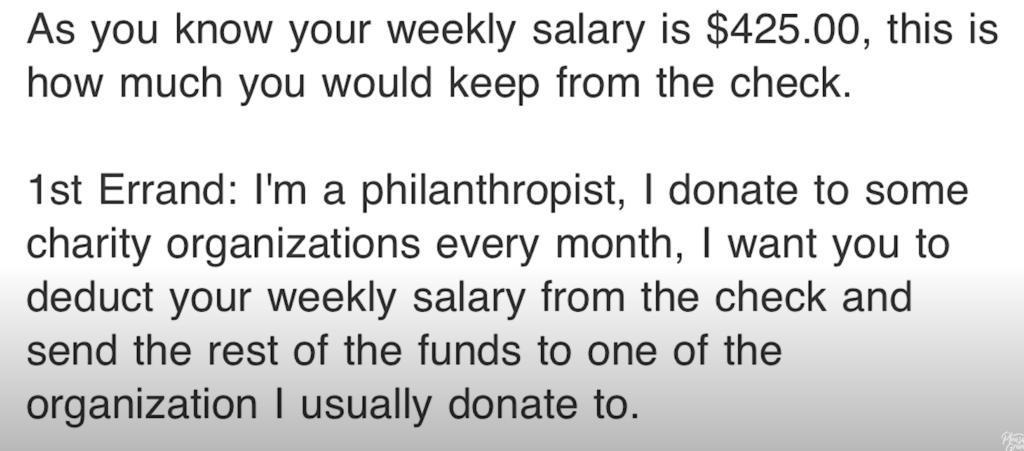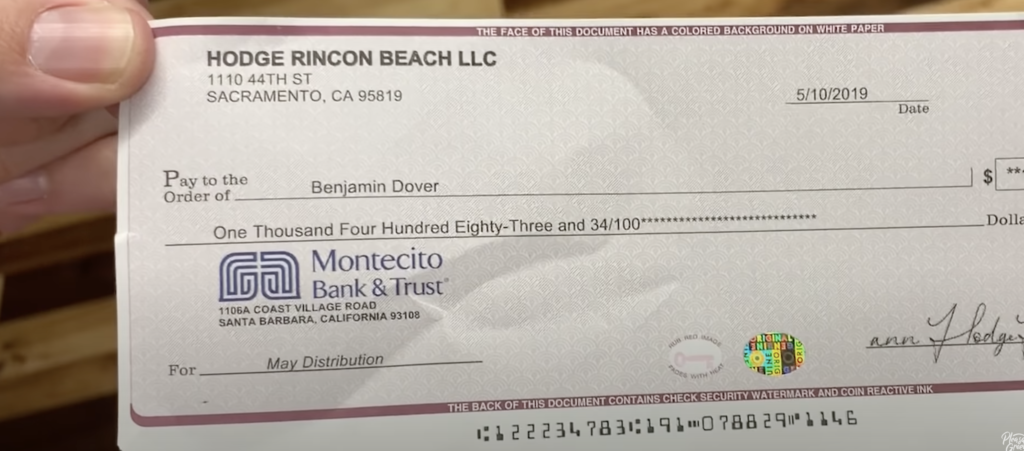What’s It Like to be the Personal Assistant to a Fraudster?
- Our protagonist quickly works his way up the "scammer ladder"
- How do those checks get to scam victims so quickly if the scammer is is Nigeria?
- "And just like that, I had committed my very first Federal crime."
We have to admit feeling a bit of satisfaction when seeing a scammer get scammed. That's why this YouTube video is so entertaining.
Wanting to document a step-by-step scam --- and trip up the scammer at the same time -- YouTuber Ben Taylor, whose channel is called Pleasant Green, is known for scam-baiting and scam-foiling. He tried to be voluntarily sucked into a classic "job posted on the internet" scam after hearing about a friend-of-a-friend being entangled.
Alas, that particular "opportunity" was no longer available, but how would he like to be the scammers "personal assistant"?
A hallmark of most scams is a... loose grasp of the English language in the scammer's written communication. This scam is no exception:

Obviously, the "rest of the funds" were supposed to be sent to a specific scam account so the bad guys could scoop up that money before the bank discovers that the initial check deposit is fraudulent -- leaving the depositor liable for the entire amount.
Still, our protagonist could not help but be impressed with how quickly the check arrived in his mail -- and how authentic it looked. He did a little trick using Grabify to determine that the scammer was located in - of all place - Nigeria (remember Ramon Olorunwa Abbas -- aka Ray Hushpuppi on Instagram?).

So, how does a scammer on the other side of the world get realistic-looking checks to potential fraud victims so quickly?
The answer became the YouTuber's next "job opportunity." The scammer offered a "job promotion" that seemed to be incredibly reliant upon little more having a good printer handy and ordering $30 worth of blank check paper. After doing his "test check" and getting a thumbs up from the scammer-boss, our hero was Fed-Exed a list of names, addresses, and check templates to print.
And therein lay another layer of the scam: Checks sent quickly from a United States address add a great deal of heft to the scam's realism.
Rather than send the bogus checks he was assigned, Ben inserted a letter explaining the scam and warned the targets to be more careful in the future. He also gave them his email address in case they wanted to help him foil more scams of this type.
You'll want to watch the video for the surprise ending...
While we do not recommend people taking the law into their own hands, we do applaud the YouTube channel Pleasant Green for bringing more attention to a fraud scheme that scams millions of dollars from its victims. Banks and financial institutions invest in technologies like AI and Machine Learning to detect fraudulent activities, but it falls upon all of us to be vigilent and spread awareness of the scams.